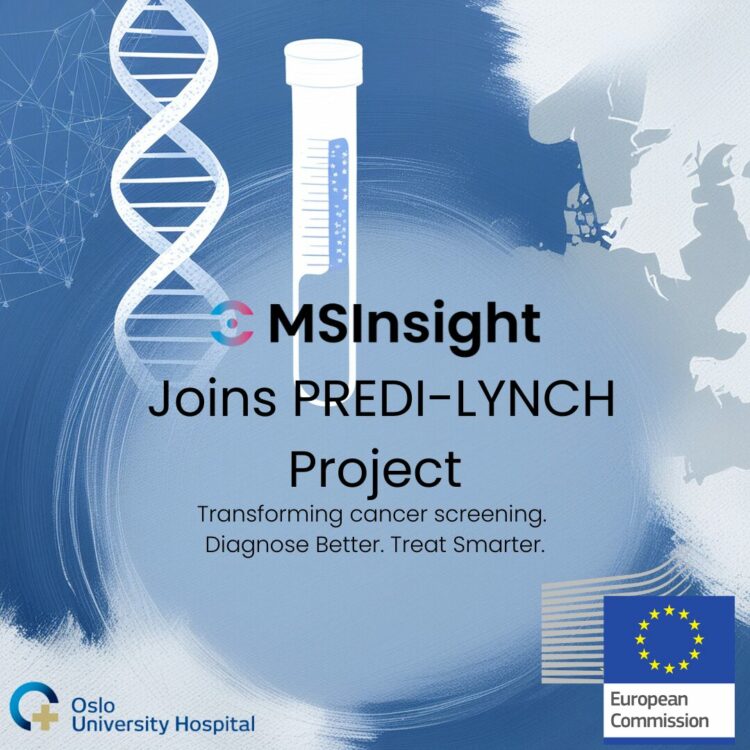
MSInsight is proud to be a contributing partner in PREDI-LYNCH, a six-year, €13.6 million Horizon Europe-funded initiative led by Oslo University Hospital (project number 101213916). The initiative is led by researcher Mev Dominguez Valentin at the Institute for Cancer Research, Oslo University Hospital (OUH).
This groundbreaking project aims to transform early cancer detection for individuals with Lynch Syndrome (LS) by developing and validating non-invasive, liquid biopsy-based screening methods.
Lynch Syndrome is the most common hereditary cancer predisposition syndrome, significantly increasing the risk of colorectal, endometrial, and urothelial cancers. Despite its prevalence, only about 5% of the estimated 2 million LS carriers in Europe are under cancer surveillance. PREDI-LYNCH seeks to address this gap by integrating advanced technologies and methodologies to improve early detection and patient outcomes.
As part of the 28-member consortium spanning 16 European countries, MSInsight contributes its expertise in genomic medicine and molecular diagnostics. Our role focuses on developing and implementing next-generation sequencing (NGS) assays to detect Microsatellite Instability (MSI), a key biomarker associated with LS-related cancers. Our main ambition will be to investigate MSI in plasma and urine based on cell-free DNA. These assays aim to provide accurate, cost-effective, and accessible screening options for at-risk individuals.
The project employs innovative clinical trial designs to evaluate multiple promising non-invasive technologies, including liquid biopsies and AI-driven data analysis, across diverse healthcare systems. By assessing the socio-economic and ethical implications, PREDI-LYNCH aims to ensure that the developed solutions are patient-centered and feasible for widespread clinical adoption.
Through our involvement in PREDI-LYNCH, MSInsight reaffirms its commitment to advancing personalized oncology and improving cancer care for individuals with hereditary risk factors.
For more information on the PREDI-LYNCH project, please visit the Oslo University Hospital press release.

